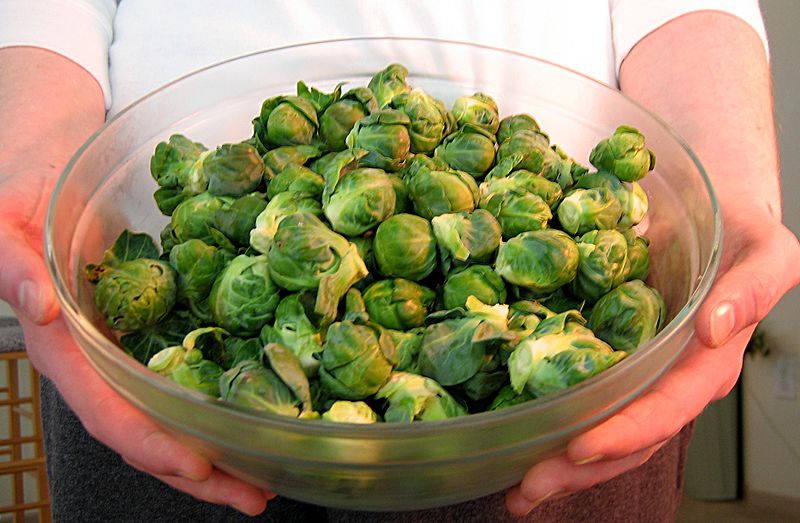The Brussels sprout is grouped into cruciferous category of vegetables with also includes cabbages and broccoli. It is a cultivar in the Gemmifera group of wild cabbages. Health-wise, Brussels sprouts are the choice vegetable due to its various health benefits as we shall uncover in this article.
Health Benefit 1: Low calories Food
Due to its low calorie content (half a cup contains a mere 28 calories); Brussels sprout is a suitable food for combating weight gain. Additionally, it contains trace amounts of fat, hence suitable in weight loss program.
Health benefit 2: Source of Fiber
Brussels sprout contain digestive-regulating fiber which aids in preventing constipation, reducing cholesterol levels and takes care of the colon.
Health Benefit 3: Rich in Vitamins and Minerals
There are various vitamins and minerals in Brussels sprout such as vitamin, C, E, and B complex, iron, magnesium, phosphrous, manganese and selenium. Vitamin K is involved in healthy bones, stops body tissues from undergoing calcification of the body’s tissues and plays an important role in proper functioning of the brain and nerves. The Vitamin C assists in fighting hyper tension, high blood pressure, lead toxicity as well as cataracts owing to its high anti-oxidant qualities. The vitamin A provides 20% of the RDA of vitamin A required in the body. This vitamin increases immunity, guards eyes against cataracts and macular degeneration and preserves bones and teeth health. It also helps in preventing urinary stones.
Health Benefit 4:Anti-Cancer Properties
The Detox-activating isothiocyasanates in Brussels sprout are chemical compounds which aid in the removal of carcinogens hence reducing risks of cancers such as breast, colon, lung, prostate, and ovarian cancer. In the same vein, they also aid in lowering the risk of cardiovascular diseases such as heart attack.
Health Benefit 5: Lowers Cholesterol Level
Brussels sprout assist in reducing cholesterol levels in the blood by attaching to bile acids which the liver extracts from cholesterol for purpose s of digesting fats. This is owed to the fact that sprout contains a high level of fiber content.
Health Benefit 6: Protects DNA
According to recent reports, there are compounds in Brussels sprout which hinder sulphotransferase enzymes’ activities which destabilizes the DNA in white blood cells.
Health Benefit 7: Antioxidants Property
The vitamin C, E A among a host of other minerals such as manganese is important anti-oxidants in this vegetable. There are also flavonoids such as isorhamnetin, quercitin, and kaempferol which guard against the effects of oxidation on the body’s cells.
Health Benefit8: Anti- Inflammation
Brussels sprout contains Glucobrassicin, a glucosinolate which combats inflammation from the genes level when it is converted into indole-3-carbinol molecule (ITC). Brussels sprout is high in omega-3 fatty acids (provides a third of RDA) which constitute the body’s anti-inflammatory messaging molecules. Notably, Brussels sprout contains a vitamin that aids in regulation of inflammatory responses, namely vitamin K.
Health Benefit 9: Cardiovascular Health
The isothiocynates sulforaphane derived from glucosinolatesare compounds in Brussels sprout which induces anti-inflammatory activity in the cardiovascular and likely abates blood vessel damage. Brussels sprout combats heart attacks, arteriosclerosis among other cardiovascular diseases through inflammation regulation mechanisms. By and by, it reduces cholesterol levels and stops further arterial blockage.
Health Benefit 10: Digestion Health
The four grams of dietary fiber in Brussels sprout provide 16% of the recommended daily allowance. This fiber aids in preventing constipation, regulates blood sugar and also checks on weight. Brussels sprout preserves the stomach lining by halting Helicobacter pylori (it causes gastric cancer), thanks to sulforaphane.


